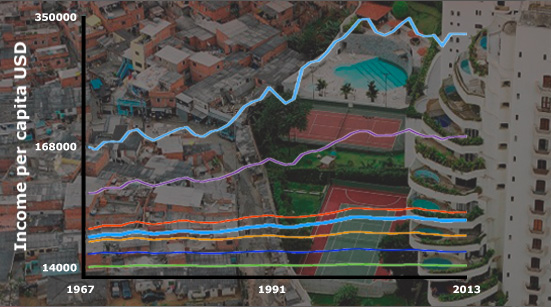epodx
Descriptive Evidence

About This Unit
Descriptive evidence is an important but often neglected form of evidence. The goal in this unit is to improve the participants’ ability to assess evidence aimed at characterizing a policy situation. Particular attention will be paid to the role of sampling and its implications for drawing conclusions from the data.
Becoming an Effective Consumer of Descriptive Evidence is taught as part of official training programs conducted by institutions collaborating with the Evidence for Policy Design program at the Center for International Development at Harvard University. The unit is part of the Building Capacity to Use Research Evidence program, and aims to equip policy decision-makers with practical skills and frameworks for effectively applying data and evidence in their work. This is one of six units that help policy makers and government officials become better consumers of policy-relevant evidence and more effective commissioners of new evidence.
What You Will Learn
- Be able to interpret distributions, and know the importance of looking at entire distributions.
- Accurately interpret and know when to apply each of the following statistics: mean, median, standard deviation, proportion, counts, and percentiles.
- When faced with descriptive evidence, pose critical questions about what is presented, how the evidence is presented, and what may be missing.
- When faced with descriptive evidence, pose critical questions that distinguish correlation from causation.
- Know the important factors about where the data come from and the basics of sampling.
- Understand the implications of measures of uncertainty and external validity in sampling.
- Understand the implications of systematic and non-systematic errors in data quality.
Prerequisites
- Some familiarity with public programs and professional experience with the policy process, ideally 5 years or more professional experience.
- Some familiarity with basic budgeting and statistics.
- English language proficiency.
The Nature of This as a Private Course
This course is private, meaning that only learners who are invited can participate.
About Evidence for Policy Design
The Evidence for Policy Design (EPoD) program at Harvard Kennedy School unites research and practice for smart policy. EPoD works to promote the use of analytical insights, drawn from economics and backed by rigorous evidence, to inform the design and implementation of public policies and programs around the world. Through research, teaching, and capacity-building activities, EPoD equips decision makers from around the world with the knowledge and skills necessary to understand how data and evidence can be used most effectively to achieve policy goals. To learn more about EPoD, please visit us at epod.harvard.edu and follow @EPoDHarvard on Twitter.
About Building Capacity to Use Research Evidence
The Data and Evidence for Smart Policy Design project led by Evidence for Policy Design (EPoD) is one of six projects funded by the UK Department for International Development (DFID) under the Building Capacity to Use Research Evidence (BCURE) program. The project constitutes a multi-year engagement in South Asia to build technical and institutional capacity to integrate data and research evidence into policy decision-making.
Through BCURE, EPoD investigates the individual and organizational constraints to using research evidence and data, and works with local implementing partners to systematically address these constraints in each country's context. The multi-pronged and multi-level capacity building approach includes training as a primary activity.
Funding
This material has been funded by UK aid from the UK government; however the views expressed do not necessarily reflect the UK government’s official policies.

